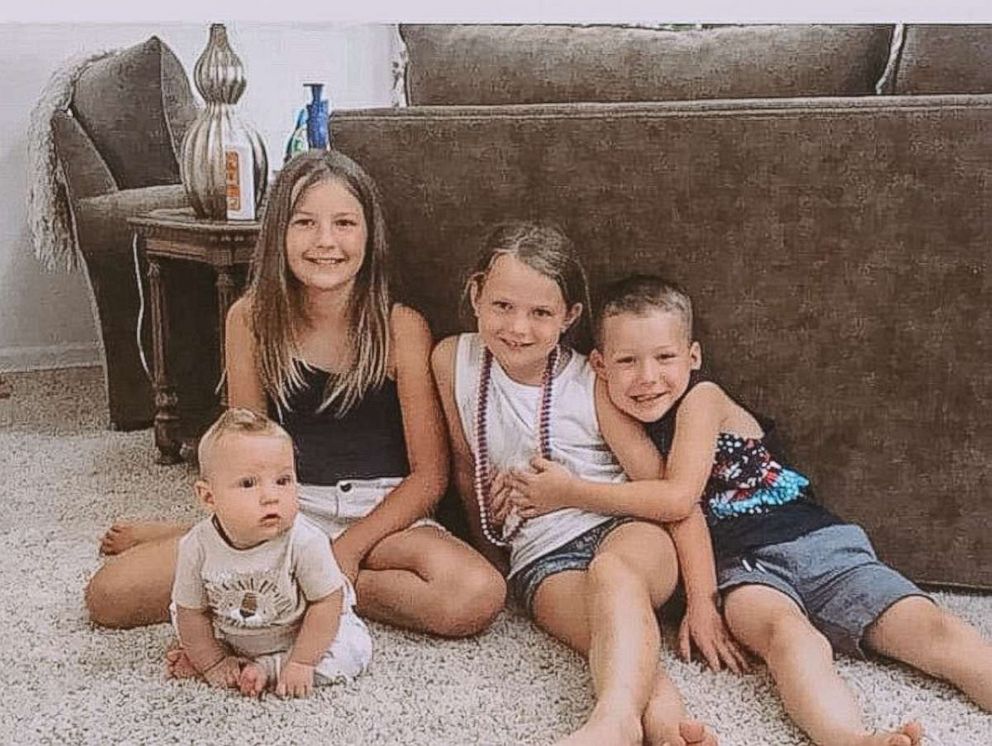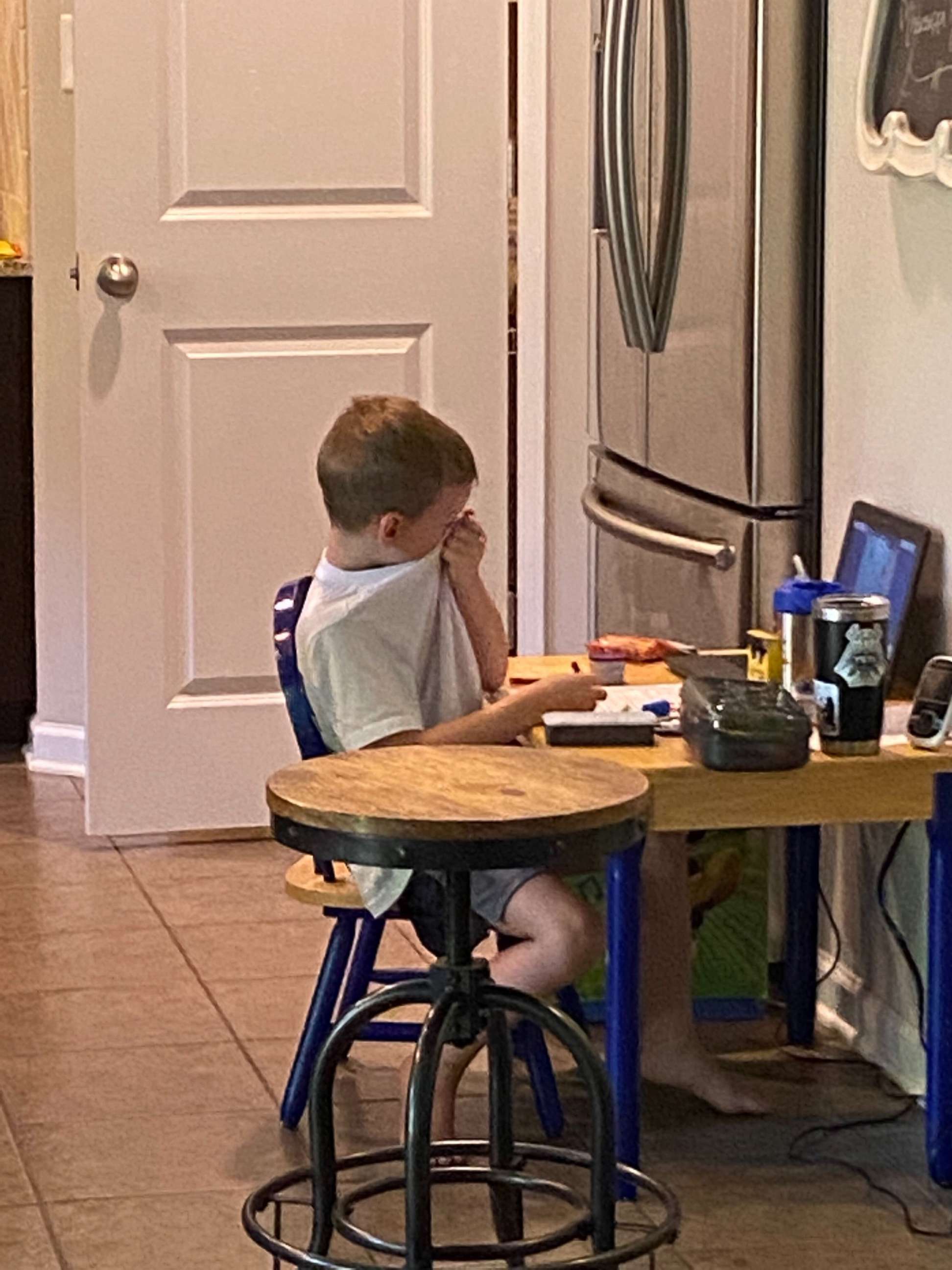Mom's photo of son crying on 1st day of virtual kindergarten hits home for parents
A photo of a tearful kindergartner trying to navigate virtual learning in the pandemic is resonating with parents as their children face similar challenges.
Jana Coombs of Sharpsburg, Georgia, snapped the picture of her 5-year-old son, Ezra, on Aug. 17 -- his first day of school. That evening she shared it on Facebook where millions commented on the post.
"It broke my heart," Coombs told "Good Morning America" of the picture. "After I took that photo I called him over, we sat on the ground, we hugged and cried together. I told him, 'It's OK. We will get through this.' I gave him a lot of love and praise and we went back and worked together."
Coombs, a mother of four, said she and her husband had stepped away from Ezra in that moment to help her 9-year-old log into her fourth grade class. Coombs also has a 7-year-old in second grade and an 8-month-old. All her grade-school children are e-learning, and she did not have the option to send them back for in-person instruction.
On his first day, Ezra logged into kindergarten at 8:15 a.m. and was learning the letter A. Coombs said his tears came from frustration when he felt like he was falling behind at some point during the lesson.

When she noticed Ezra was upset, Coombs snapped a photo. The first person she sent it to was his grandmother, who asked how distance learning was going.
Coombs said she wanted to post the photo on Facebook since it's the new reality for many families.
"If we don't speak up, nothing's going to change," she said. "It's more than one-plus-one-equals-two. It's also their mental health. They're not face-to-face with teachers, socializing with other children, they're stuck behind the screen."
Coombs' Facebook post appeared to hit home with parents, many of whom reached out to thank her for sharing, she said.
"Of course on the flip side there was controversy with sending your children to school and possibly contracting COVID," Coombs said of the comments. "That was the debate."
Coombs said her county officials are trying for a September return-to-learn plan, though the date keeps changing.

"We will 100% send them," she added. "They want to go back. I respect my children's opinion and their feelings on the situation. They miss their friends, they miss their teachers, they miss socialization."
In a statement posted to its website, the American Academy of Pediatrics (AAP) wrote that it "strongly advocates that all policy considerations for the coming school year should start with a goal of having students physically present in school."
The AAP stressed the importance of school in children's lives.
"Schools are fundamental to child and adolescent development and well-being and provide our children and adolescents with academic instruction, social and emotional skills, safety, reliable nutrition, physical/speech and mental health therapy, and opportunities for physical activity, among other benefits," the AAP said. "Beyond supporting the educational development of children and adolescents, schools play a critical role in addressing racial and social inequity."
Earlier this month, Kenya Hameed, a neuropsychologist at the Child Mind Institute, and Dr. Harold Koplewicz, president and medical director of the Child Mind Institute, shared tips with "GMA" on how parents and students can prepare mentally for the school year ahead. Some of their advice includes ways to process emotions and being smart with screen time.
Read more of Hameed's and Koplewicz's expert tips here.








